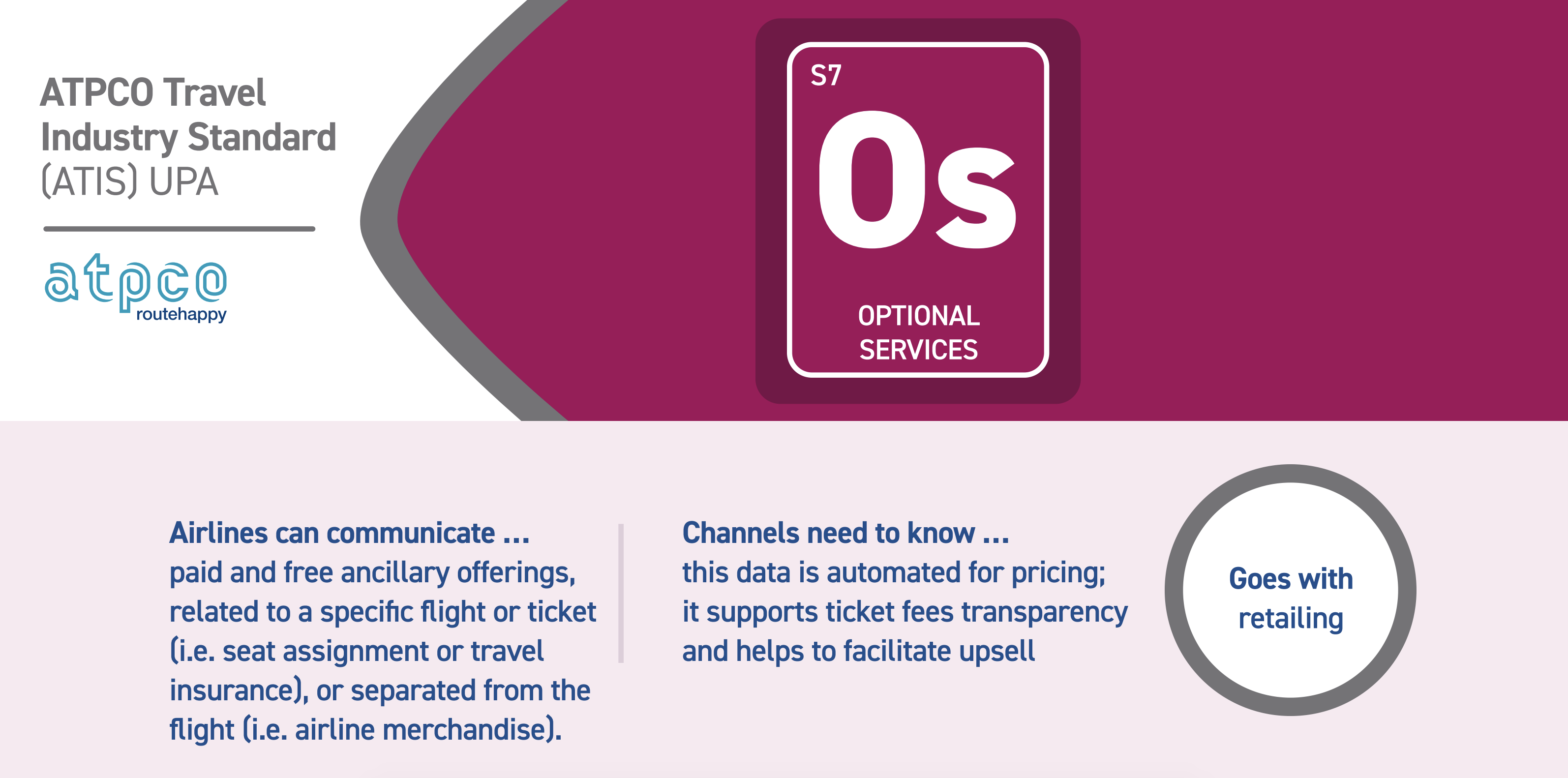
How do 400+ airlines, 10+ GDSs, and hundreds of websites and sales channels produce consistent answers to flight shopping searches? Through ATPCO standards.
Standards make up one of the pillars of ATPCO's values to the industry
They are a reliable foundation for producing consistent pricing and retailing results from data that airlines provide, and they make sure that these results, whether for consumers or other businesses, accurately reflect what airlines expect for themselves and for the systems representing their offers.
It sounds, well, standard to expect the industry to work together seamlessly, but in fact standards can be complicated, and their meaning can be hidden under technical jargon used by industry veterans almost like a second language. A new series of iconography of the most commonly referred to standards is helping ATPCO make understanding standards content easier for everyone.
The 5 most commonly referred standards
-
Tax Rules
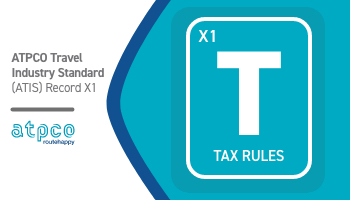 With Tax Rules, airlines can communicate the right amounts and application of rules for itinerary and service fee taxes for each sale, from a central industry source. Channels need to know what is being taxed, all the product attributes, consumer attributes, and the location of the sale.
With Tax Rules, airlines can communicate the right amounts and application of rules for itinerary and service fee taxes for each sale, from a central industry source. Channels need to know what is being taxed, all the product attributes, consumer attributes, and the location of the sale.
-
Penalties (Category 16)
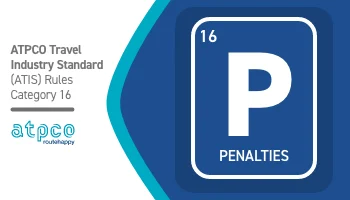 Penalties are fees and conditions applied when the airline-passenger contract (the "terms and conditions" one signs when purchasing a ticket) does not go to plan and travel is changed or canceled. With Category 16, airlines can communicate text to describe any penalties for a change or refund on a journey after it has been purchased. Channels needs to know that this is display text only, the fine print of terms and conditions that states how to manually process changes and cancellations. This data is not used for automated for pricing, retailing, or cancellation.
Penalties are fees and conditions applied when the airline-passenger contract (the "terms and conditions" one signs when purchasing a ticket) does not go to plan and travel is changed or canceled. With Category 16, airlines can communicate text to describe any penalties for a change or refund on a journey after it has been purchased. Channels needs to know that this is display text only, the fine print of terms and conditions that states how to manually process changes and cancellations. This data is not used for automated for pricing, retailing, or cancellation. -
Category 31 (Voluntary Changes)
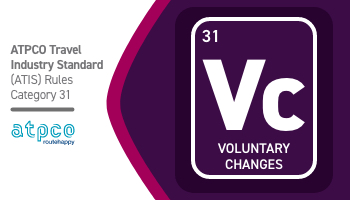 Voluntary changes occur when a passenger asks to change their ticket. With Category 31 (Voluntary Changes), airlines can communicate the rules that apply to these changes. Channels need to know what fares and rules to apply, passenger attributes, and details of the original journey, which all have a factor in how the passenger is ultimately charged for that change. When Voluntary Changes data on rules and charges is automated, it's much faster for airlines and agencies to serve their customers and it's much easier for technology providers and industry bodies to calculate these changes accurately.
Voluntary changes occur when a passenger asks to change their ticket. With Category 31 (Voluntary Changes), airlines can communicate the rules that apply to these changes. Channels need to know what fares and rules to apply, passenger attributes, and details of the original journey, which all have a factor in how the passenger is ultimately charged for that change. When Voluntary Changes data on rules and charges is automated, it's much faster for airlines and agencies to serve their customers and it's much easier for technology providers and industry bodies to calculate these changes accurately. -
Category 33 (Voluntary Refunds)
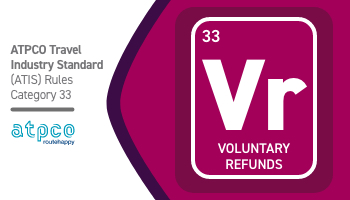 With Category 33 (Voluntary Reunds) airlines can communicate the rules that apply when a passenger requests a full or partial refund of a journey. Similar to Category 31, channels need to know what fares and rules to apply, passenger attributes, and details of the original journey, which all have a factor in how the passenger is ultimately being refunded. Voluntary Refunds provided critical support for standards setting activity during ATPCO's COVID-19 response in Q2 2020, because airline needed consistent, uniform ways to communicate their rapidly adapting emergency policies to all channels.
With Category 33 (Voluntary Reunds) airlines can communicate the rules that apply when a passenger requests a full or partial refund of a journey. Similar to Category 31, channels need to know what fares and rules to apply, passenger attributes, and details of the original journey, which all have a factor in how the passenger is ultimately being refunded. Voluntary Refunds provided critical support for standards setting activity during ATPCO's COVID-19 response in Q2 2020, because airline needed consistent, uniform ways to communicate their rapidly adapting emergency policies to all channels. -
Optional Services
With Optional Services airlines can communicate paid paid and free offerings, related to a specific flight or ticket (i.e. seat assignment or travel insurance), or separated from the flight (i.e. airline merchandise). Channels need to know this data is automated for pricing; it supports ticket fees transparency and helps to facilitate up-sell. Ultimately Optional Services allows to efficiently personalize customer offerings in any passenger touch point, enabling travelers to customize aspects of the trip that will make it more comfortable for them.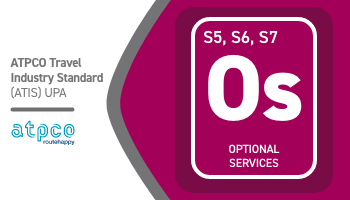
These pictographs are one of the ways ATPCO is making the concept of Standards more approachable. Did you find these helpful and want to see more? Check out the 2-minute breakdown of standards video and learn how they affect the airline industry.


